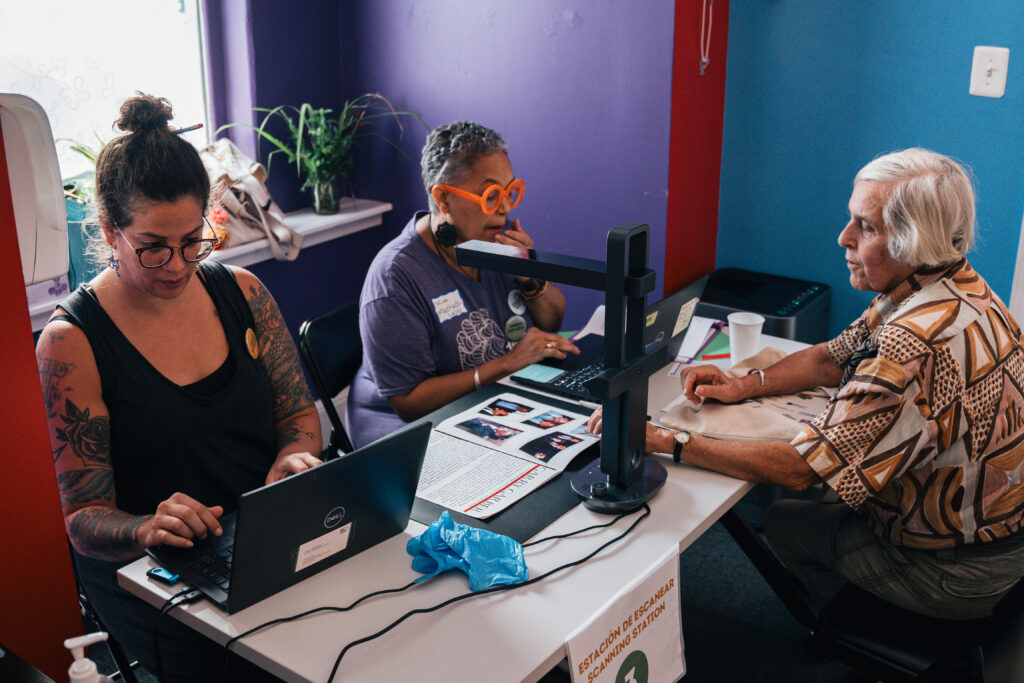
WHAT DID WE DO?
This past September, the DC History Center hosted a community archiving program at La Clinica del Pueblo at La Casa in Mt. Pleasant. We invited community members interested in the preservation of local Latino/a/x histories to spend the afternoon together to connect over stories and learn about long term preservation of intimate archives. The goal of this effort was to engage neighbors and local community members in cocreating a historical archive that captures the lived experiences of Latino/a/x populations in DC.
WHY DOES THIS MATTER?
It is no secret that historical repositories and the institutions of memory have long excluded a myriad of experiences in their collecting practices, including Latino/a/x communities. As past research indicates, including in our Researching Latino/a/x DC research guide, materials capturing the experiences and perspectives of Latino/a/x communities in and around DC are largely absent from the city’s formal institutions of memory. This absence is felt not only by researchers exploring the historical landscape; it also ripples into Latino/a/x populations often feeling invisible and excluded from cultural and political discourse. Further, even when Latino/a/x experiences are included, they are often riddled with oversimplifications and lacking cultural context. Our hope is that by empowering Latino/a/x communities to document their own histories, we start to counter that erasure.
In order to not repeat the mistakes of the past, we learned that there are two roles that the DC History Center can play in addressing Latino/a/x archival silences. The obvious step is to prioritize the collecting of Latino/a/x materials in our institutional archive. However, we also take seriously the question of whether and when we are the best stewards of cultural materials. Oftentimes, the best place for these materials to be preserved is in the hands of the people and communities whose memories are being recorded. Building understanding for the creation and caring of intimate archives in these instances is a valuable contribution that our institution can provide.
Our community archiving event, entitled Claves del Pasado: Archivo Comunitario, was aimed at employing this two-pronged framework. First, we sought to help folks digitize their materials, including photographs, and their personal letters and documents. All contributors walked away with their original materials, along with a portable memory drive that contained high quality scans. Contributors were then given the option to donate a copy of their scanned materials to the DC History Center’s collection. Many contributors chose to donate copies, which added 61 items to our digital resources, some of which require additional processing before becoming publicly available. These materials allow us to make the voices and lived experiences of local community members available for researchers and interested community members that turn to us for local historical knowledge.
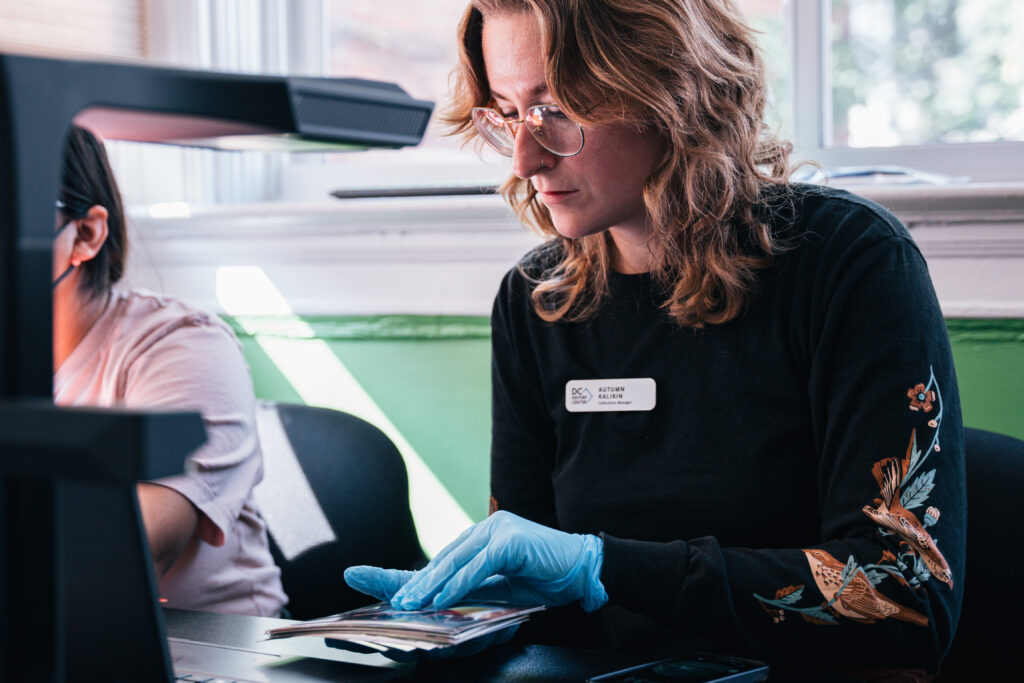
HOW DID WE DO IT?
In the lead up to our event, we were forced to assess and deconstruct many of our internal processes in order to ensure that we were equipped to handle these potential collections acquisitions. We worked with the Latino/a/x Advisory Group and with dedicated support from Wanda Hernandez, PhD, who served as the project’s humanities scholar. This involved ensuring that we embedded cultural and linguistic accessibility into every step of this process. We made sure that our program language and events communication were available in Spanish and disseminated it through communications channels that are important to local Latino/a/x communities. We also translated our collections processing materials, including the institutional deed of gift, and other handouts that lay out donors’ rights and copyright information. These are materials that can be used in future collections efforts, giving us the tools to do this work beyond this one program.
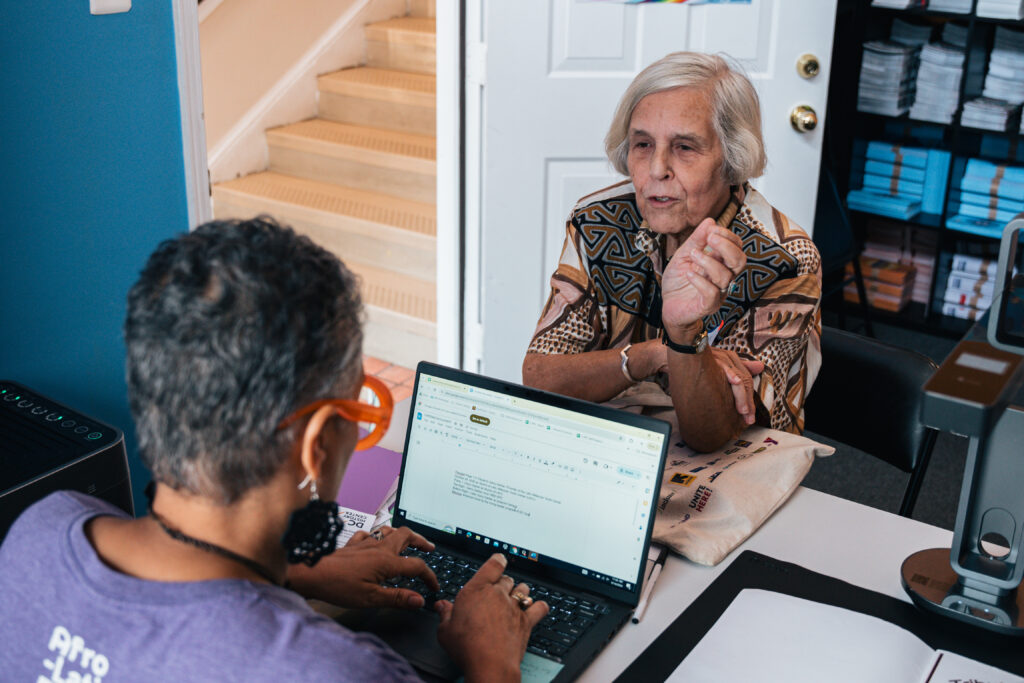
WHAT DID WE LEARN?
This project allowed us to put into practice a lot of the ideas that have been generated in conversation with our Latino/a/x Advisory Group. In many ways, it was an experiment in whether this community-centered model for historical archiving can work in our city. At our program in September, we learned that there is indeed community interest in learning about archival processes and exploring avenues for long-term preservation of intimate and community histories. Our goal is to continue to explore how we sustain these types of efforts.
If you wish to become involved in the work of the Latino/a/x Advisory Group, please contact mbarros-titus@dchistory.org. Applications are accepted on a rolling basis. The 2025 cohort applications will be reviewed in January 2025.
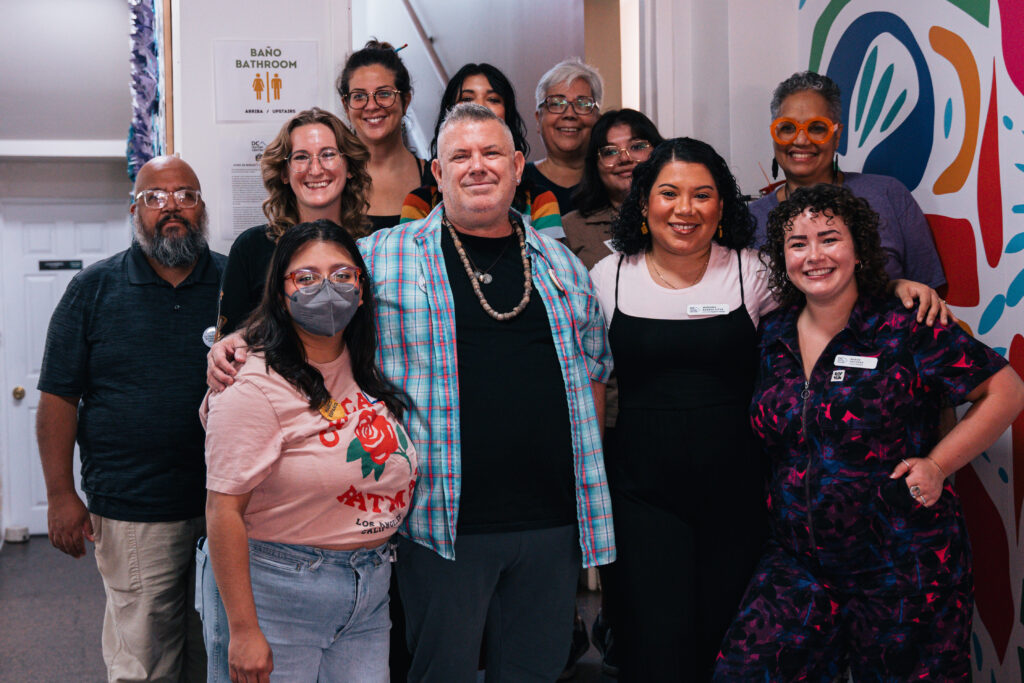
WHAT’S NEXT?
The copy of materials that were added to DC History Center’s digital collection will be made available through our new digital collections platform in January 2025. In addition, beginning in 2025, we will provide specialized appointments for those interested in scanning their personal materials using our high-quality scanners in the Kiplinger Research Library. These can include family papers, family photographs, community organization papers, and ephemeral material capturing local community life. These library appointments will be open to all Washingtonians, not limited to Latino/a/x community members. We are also aiming to have a second community archiving program in 2025. We will publish more information on that program soon.
For inquiries regarding the specialized library appointments, please contact the Kiplinger Research Library at library@dchistory.org.
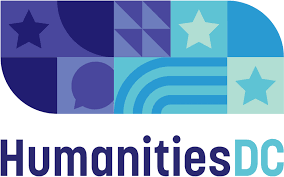
This project was supported by a grant from HumanitiesDC as part of the ‘Humanities Grant Program,’ an initiative funded by the DC Commission on the Arts and Humanities.